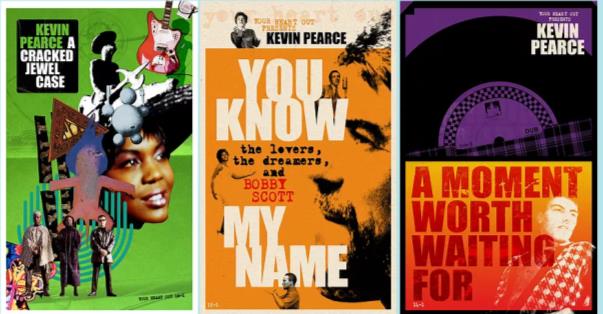
After the success of its C81 collaboration with Rough Trade in early 1981 the NME launched a long-running series of tape compilations. The first release in this series was the Dancin’ Master cassette which was ‘assembled’ in Autumn 1981. Where C81 placed a particular emphasis on showcasing sounds from small labels with a strong Rough Trade-related presence, the Dancin’ Master comes at the pop thing from a different, much more colourfully corporate, bigger-budget, angle with a pronounced Island-linked leaning. The tape is a bit of a mess, with several of the major attractions represented by live tracks or reworkings. But the appeal of the big guns, like The Jam, The Beat, Ian Dury, Elvis Costello, Talking Heads, will have been a useful way of capturing the attention of readers.
The rhetoric around the Dancin’ Master cassette reflects how pop had evolved during 1981. The cover proclaims: “Heart/Beat x Body/Motion + Soul/Sound = Dance Commotion”. The new emphasis was on the communal if imaginary dancefloor, where as it was easy to envisage C81 being about dancing alone in the bedroom or living room. If C81 set the tone with Scritti’s The ‘Sweetest’ Girl, then Dancin’ Master set its stall out with a version of Tom Browne’s Funkin’ For Jamaica. You could write several books about the contrasts and similarities between those two tracks alone.
The Tom Browne track is perfectly followed by a great track from Linx, who were one of three acts to feature on both C81 and Dancin’ Master. From a perspective of 30-odd years on the three British funk tracks featured on Dancin’ Master (Junior Giscombe and Beggar & Co. are also included) sound particularly brilliant. It’s tempting to argue they sound so great that there must have been some sort of subsequent conspiracy to suppress or stifle their magnificence. Although knowing the UK music industry it’s doubtless more a case of general ignorance and lack of imagination, not knowing how to develop the homegrown talent, thus shooting itself in the foot.
There is a strong New York presence on this collection, reflecting how the city had become very much the place to look for inspiration. The attention had been on Liverpool, Manchester, Glasgow and Edinburgh, but suddenly New York had a glamour that was not to be found in the UK’s creative centres. Early Sugarhill rap tracks from Grandmaster Flash and Funky Four + 1 still sound perfect alongside recordings by Kid Creole and the Coconuts and James White and the Blacks. This was at a time when parts of the pop media were getting very excited about Ze Records and the whole Mutant Disco thing was about to take off, Island was handling distribution etc., and August Darnell was understandably enough considered to be the saviour of the human race. The Kid Creole track included on Dancin’ Master was a live romp through his old Machine disco classic There But For The Grace Of God Go I, and the James White track was the August Darnell disco remodelling of Contort Yourself.
There is the temptation to read too much into a tape, but the absence of electronic ‘new pop’ outfits is intriguing. It’s probably only a question of timing and practicalities. Synthesizers, however, are really only represented by the Japanese contingent, which was Yellow Magic Orchestra-protégée Susan, and The Plastics covering The Monkees.
UK reggae was well represented. The legendary Lloyd Coxsone of Sir Coxsone Sound is featured with Zion Bound. It would, I confess, be another 12-odd years before I hear the King of the Dub Rock sets Coxsone made, when they appeared on CD. Zion Bound was from the second of these, which ironically featured Sly & Robbie blurring the lines between the UK underground and Chris Blackwell’s Compass Point revolution. Dennis Bovell was also featured on Dancin’ Master with Better which would also appear on his Brain Damage LP, a record which even by the mixed-up standards of the early ‘80s featured an astonishing array of styles. Dennis also appeared with his dub mix of The Polecats’ Rockabilly Guy, which again illustrates how lines could become delightfully blurred. It’s actually amusing now watching old Top of the Pops footage of The Polecats from ’81, with Boz Boorer there with his quiff and Gretsch, to note how soon afterwards The Smiths would be treading the same revivalist boards. Although if you are going to look back it would be more worthwhile to spend 40 minutes or so with this 1981 documentary on sound systems in London, which heavily features Six Coxsone Sound. Credit must be given to Dreadphotos for sharing this valuable footage:



